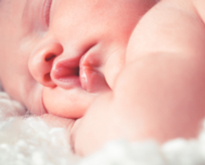In 2019, 4.17 million babies were born in the European Union (EU), continuing a decreasing trend that started after 2008 when 4.68 million children were born in the EU.
The total fertility rate stood at 1.53 births per woman in the EU in 2019, a small decrease from its recent peak in 2016 (1.57), yet an increase compared with 2001 (1.43). The highest total fertility rate since the start of comparable time series was in 2008, 2010 and 2016 (1.57), in between it fluctuated between 1.51 and 1.57.
Source dataset: demo_find
Fertility rate highest in France
In 2019, France (1.86 live births per woman) was the Member State with the highest total fertility rate in the EU, followed by Romania (1.77), Czechia, Ireland and Sweden (all three 1.71), and Denmark (1.70).
Source dataset: demo_find
In contrast, the lowest fertility rates were observed in Malta (1.14 births per woman), Spain (1.23), Italy (1.27), Cyprus (1.33), Greece and Luxembourg (both 1.34).
Number of births by foreign-born mothers increasing
The number of children born to foreign-born mothers – both from other EU Member States and from non-EU countries – has been growing in the EU since 2013 (from when comparable data is available).
The share of children born to foreign-born mothers differs significantly between Member States: in 2019, more than 65 % of the children born in Luxembourg were from foreign-born mothers, while in Cyprus, Austria and Belgium this share was around one third.
On the other end of the scale, nine countries had less than 10% of children born to foreign-born mothers, with Bulgaria, Slovakia and Poland with the lowest share (2%).
For more information:
- Statistics Explained article on fertility statistics
- Eurostat website section dedicated to statistics on demography
To contact us, please visit our User Support page.
For press queries, please contact our Media Support.


